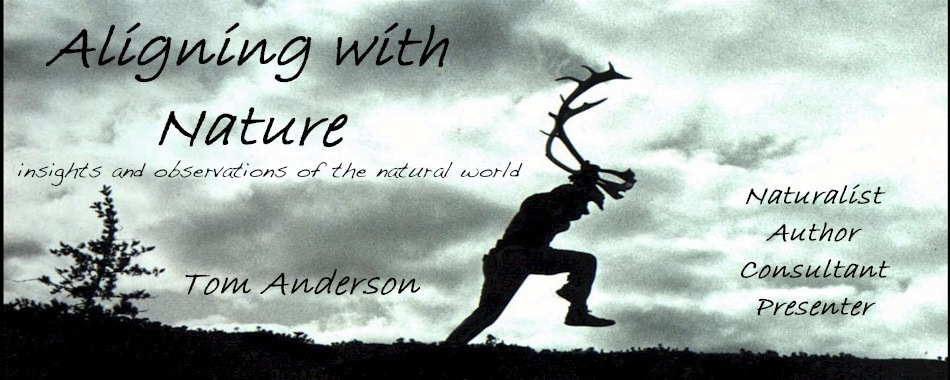The Spoken Word

Finally, it seems we have been delivered a touch of honorable Minnesota winter. The cold front has a way of eliciting whimpers and slowing things down. This is the weather that inspires Nancy and me to pull our small wooden rocking chairs closer to the kitchen woodstove.
Nancy said, “It feels like a day off.” That pronouncement reminded me of our first date.
Over 20 Mays ago I invited Nancy to do some plant collecting with me on our family farm. Hardly a typical first date but it served me well. Rather than consider it an odd outing, she quickly accepted. Her nodding smile and willingness to head afield set into motion the potential of love.
We spent two hours collecting plants to place carefully in my plant press before we returned to the house. Lunching and chatting in the yard, we learned about each other. We both relished a day off from our work.
Suddenly I jumped to my feet, told her to wait right there and dashed into the house to pull a book from my bookshelf. Rejoining her, I reverently opened the green cloth cover bedecked with gilt and floral decorations that bore the title Days Off by Henry Van Dyke. Printed in 1907, this book like many others of Van Dyke is a visual treat.
I began to read aloud the first essay: “A day off keeps a person from becoming muscle-bound in their own task. Such a day leads us out, away from our own garden and into curious and interesting regions of this wide and various earth, of which, after all, we are citizens.”
Thus began a long tradition of Nancy and me reading aloud. Besides reading books on our own, thus far Nancy and I have read aloud over 70 books together. Some of them have promoted great discussion, such as issues of racial injustice unveiled in Just Mercy by Bryan Stevenson or the core question of nonhuman consciousness brought to us by Carl Safina in his well-crafted book, Beyond Words: What Animals Think and Feel.
Reading the classic novel Big Sky we wondered if Pulitzer Prize author A. B. Guthrie was giving the reader a lesson in humility when his young, early 19th century Missouri River traveler, Jim Deakins, was pestered by hordes of mosquitoes around an evening campfire. Deakins grumbles, “What’s the good of a gnat anyways?” He pauses before answering his own question. “They don’t serve no purpose, unless to remind a man he ain’t such a somebody.”
Every year we reread Truman Capote’s holiday classic, A Christmas Memory, and every year we release a freshet of tears.
Mark Twain’s Adventures of Huckleberry Finn is perhaps my favorite read. Oh how we guffawed when Huck swims out to a large river raft and spies on the loud boasting by the Child of Calamity and Bob. “Look at me! I’m the man they call Sudden Death and General Desolation! Sired by a hurricane, dam’ed by an earthquake, half-brother to cholera, nearly related to the small-pox on my mother’s side!”
Nancy and I have been provoked and inspired by Daniel Quinn’s amazing novel Ishmael. This is a book I believe should be required reading for all high school students. It is a series of philosophical dialogues between a gorilla and a man. “The world doesn’t belong to us, we belong to it. Always have, always will. We belong to the world. We belong to the community of life on this planet–it doesn’t belong to us. We got confused about that, now it’s time to set the record straight.”
When we encounter a beautifully crafted sentence we often pause, back up, and read it again. Tara Westover, in her critically acclaimed memoir, Educated, gave us several read-over sentences. Leif Enger’s novel, Peace Like a River is another well-crafted book and should be read aloud.
We were saddened last week to hear of the death of poet Mary Oliver. She is my favorite contemporary poet. I feel as if I have lost a dear friend.
Mary Oliver would not allow something so trivial as cold weather to keep her from going out, notebook in hand, to ponder things like grass stems, a feather, or the shape of a naked winter tree. And so on this day off, it is only fitting that we boot and bundle up for a short hike into the frigid woods.
Upon returning to the house I pulled one of our Mary Oliver books from the shelves. Back in our rockers and close to the warm stove I read aloud an appropriate poem with Nancy.
When Death Comes
When death comes
like the hungry bear in autumn;
when death comes and takes all the bright coins from his purse
to buy me, and snaps the purse shut;
when death comes
like the measle-pox
when death comes
like an iceberg between the shoulder blades,
I want to step through the door full of curiosity, wondering:
what is it going to be like, that cottage of darkness?
And therefore I look upon everything
as a brotherhood and a sisterhood,
and I look upon time as no more than an idea,
and I consider eternity as another possibility,
and I think of each life as a flower, as common
as a field daisy, and as singular,
and each name a comfortable music in the mouth,
tending, as all music does, toward silence,
and each body a lion of courage, and something
precious to the earth.
When it’s over, I want to say all my life
I was a bride married to amazement.
I was the bridegroom, taking the world into my arms.
When it’s over, I don’t want to wonder
if I have made of my life something particular, and real.
I don’t want to find myself sighing and frightened,
or full of argument.
I don’t want to end up simply having visited this world.
Filed under: Uncategorized

Leave a Reply
You must be logged in to post a comment.